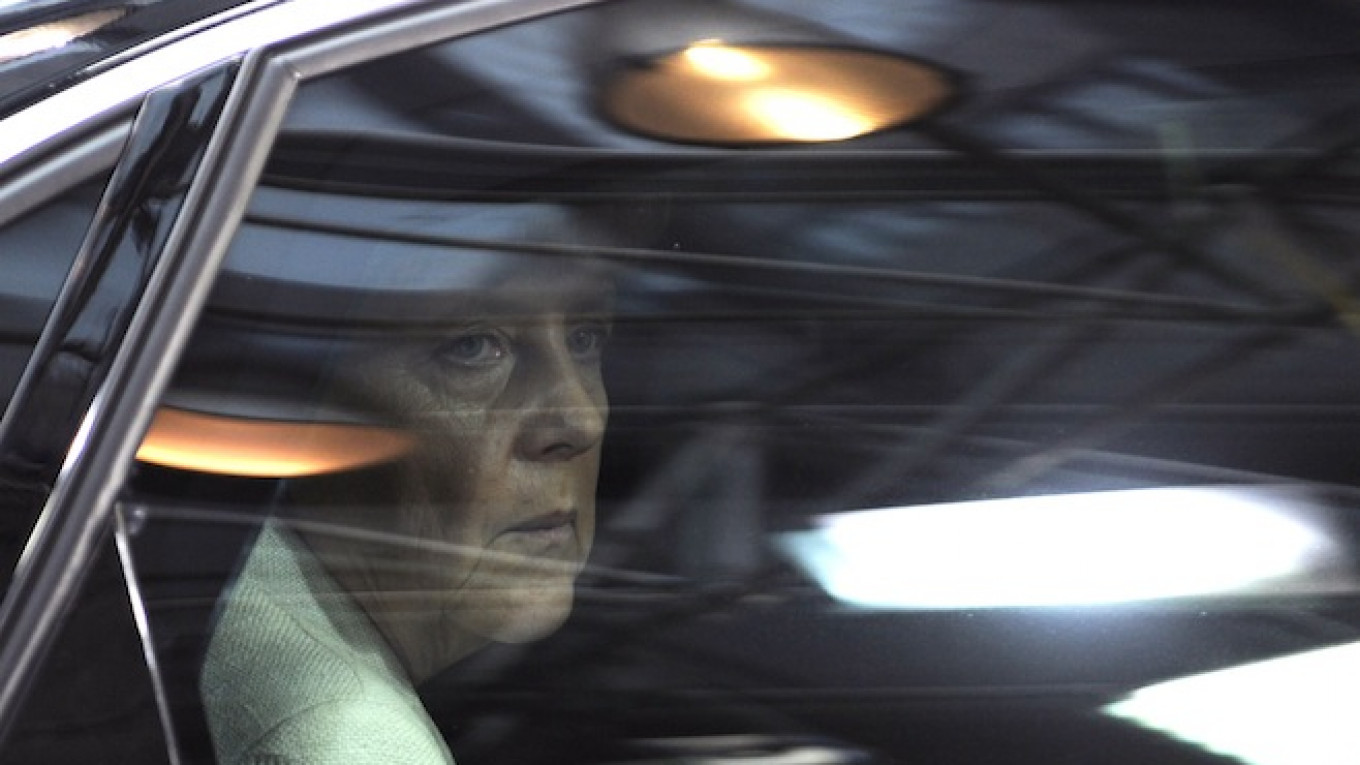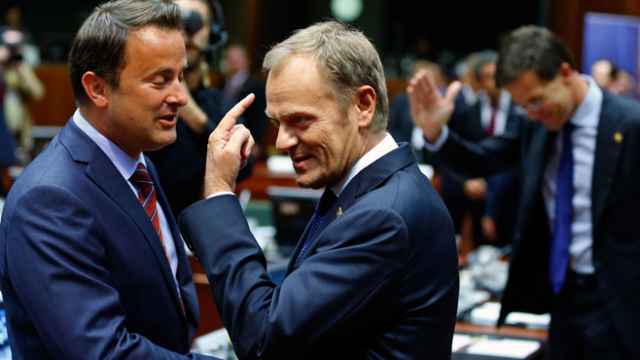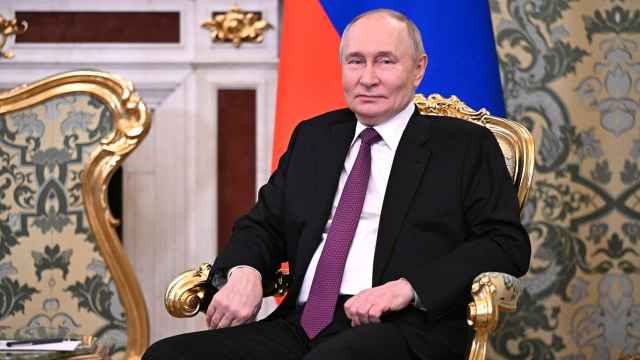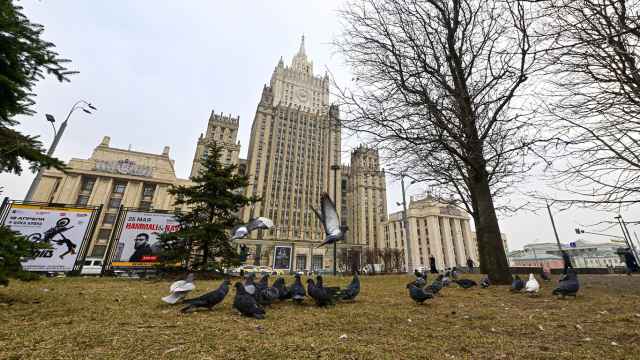BRUSSELS — Europeans could be barred from buying new Russian government bonds under a package of extra sanctions over Moscow's military role in Ukraine that European Union ambassadors were to start discussing on Monday, three EU sources said.
EU leaders decided at a summit on Saturday that the direct engagement of Russian troops in the war in eastern and southern Ukraine — still denied by Moscow — called for a stepping up of sanctions imposed so far unless Russia pulled its soldiers back.
German Chancellor Angela Merkel, who led the drive for a tougher EU response, said Monday that Moscow's behavior in Ukraine must not go unanswered, even if sanctions hurt the German economy, heavily dependent on imported Russian gas.
"I have said that [sanctions] can have an impact, also for German companies," Merkel told a news conference in Berlin.
"But I have to say there is also an impact when you are allowed to move borders in Europe and attack other countries with your troops," she said. "Accepting Russia's behavior is not an option. And therefore it was necessary to prepare further sanctions."
The leaders asked the executive European Commission to prepare further measures within a week, building on steps taken at the end of July, which targeted the energy, banking and defense sectors.
"I'm hearing that a ban on buying Russian government bonds could be in the next package," an EU official familiar with the preparations said.
Tighter restrictions on dual use technologies with military as well as civilian applications could also figure, along with some more curbs on advanced energy exploration equipment, the official said.
An EU diplomat said ambassadors of the 28 member states would hold an emergency meeting on Monday at 4 p.m. to start work on a "significant" package of further measures although no immediate decisions were expected. A further meeting is set for Wednesday.
The leaders said the commission should include in the sanctions "every person and institution dealing with the separatist groups in the Donbass," potentially leaving a very broad area that could be targeted.
However several EU countries heavily dependent on Russian gas, including the Czech Republic, Slovakia and Austria, are opposed to new sanctions, which require unanimous agreement.
"I consider sanctions meaningless and counterproductive," Slovak Prime Minister Robert Fico said on Sunday.
"Until we know what is the impact of the already imposed sanctions, it makes no sense to impose new ones," Fico said. "I reserve a right to veto sanctions harming national interests of Slovakia."
Financial Sector, Gas
EU diplomats said the main thrust of new steps could be financial because that would hit the Russian government rather than citizens. It could be coordinated with the U.S., whose measures were also focusing on the financial sector.
Two diplomats said they did not rule out a ban on the purchases of Russian sovereign bonds to make it more difficult for the Russian government to finance itself on markets.
In July, the EU banned Russian state-owned banks from raising capital or from borrowing in EU markets.
Moscow has retaliated against sanctions by banning most agricultural imports from Europe and the U.S. The risk of a ban on buying Russian sovereign bonds is that the Kremlin could hit back by dumping European government bonds, of which Russian state institutions have significant holdings.
Asked about the idea that Russia could be cut off from the international money transfer system known as SWIFT, one diplomat said the idea had been floated several months ago, but that there was opposition to it among several EU countries.
"The problem is that while it would probably work well in the short-term, as in the case of Iran, in the long-term it would trigger the creation of an alternative system to SWIFT and the setting up of two alternative world transaction systems and nobody wants that," the diplomat said.
The July sanctions also hit equipment for the oil and defense sectors, and the sale of dual use technologies to military end-users. That restriction could now be broadened.
Russia's gas sector, which powers European industry and lights its cities, has been spared so far. Moscow is the world's largest exporter of gas and second-largest exporter of oil.
But the new package could also include high technology for gas excavation, another EU diplomat said.
"It would make sense to target high-tech gas technologies when it comes to possibility of further sanctions against Russia as it would impact Russia's gas project signed with China," the diplomat said.
A Message from The Moscow Times:
Dear readers,
We are facing unprecedented challenges. Russia's Prosecutor General's Office has designated The Moscow Times as an "undesirable" organization, criminalizing our work and putting our staff at risk of prosecution. This follows our earlier unjust labeling as a "foreign agent."
These actions are direct attempts to silence independent journalism in Russia. The authorities claim our work "discredits the decisions of the Russian leadership." We see things differently: we strive to provide accurate, unbiased reporting on Russia.
We, the journalists of The Moscow Times, refuse to be silenced. But to continue our work, we need your help.
Your support, no matter how small, makes a world of difference. If you can, please support us monthly starting from just $2. It's quick to set up, and every contribution makes a significant impact.
By supporting The Moscow Times, you're defending open, independent journalism in the face of repression. Thank you for standing with us.
Remind me later.






